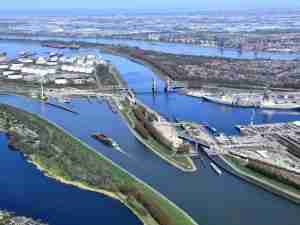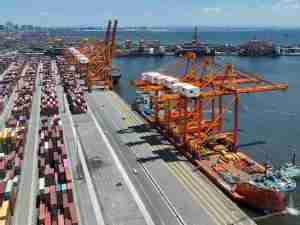As this issue of AJOT was going to press, commercial operations at the Port of Montreal had come to a virtual stand-still due to a maritime employer lock-out of 850 dockers that began on Monday, July 19.
The first such labour conflict since 1995 at Montreal has prompted global as well as domestic shipping lines to divert their vessels to Halifax.
“Most of the majors are now re-routing their Montreal-destined vessels to Halifax,’ an informed industry source said.
In Halifax, Michele Peveril, spokesperson for the Halifax Port Authority, confirmed the arrival of a number of “additional vessels.”
Global carriers diverting their vessels include Maersk Line, Hapag-Lloyd, Hanjin Shipping, and OOCL. Newfoundland-based Oceanex Inc. is also diverting its ships to Halifax.
The Montreal longshore union had approached docker unions in Halifax and other East Coast ports in North America to not touch diverted ships, but this appeal appears to have failed.
Facilities at Halifax can handle the extra work since they are presently only operating at about one third capacity.
The Port of Montreal is a strategic hub for traffic with Central Canada and the US Midwest.
Revenue guarantees are the key issue at the first such labour conflict at the Port of Montreal since 1995. The longshoremen have been without a new contract since Dec. 31, 2008.
“The market conditions are different now,” said Gilles Corriveau, spokesman for the Maritime Employers Association (MEA). “We can no longer afford to pay people to stay at home.”
Negotiators from both parties were slated to resume negotiations in the presence of federal mediators on July 22 and July 23.
Lisa Raitt, federal labour minister, has urged the two parties to resolve their differences. Thus far, the federal government has not evoked the possibility of back-to-work legislation, as has occurred in the past, but observers consider this option is very much in the cards if the conflict lasts much longer.
“If this lock-out last for any significant time, it will have a negative impact on many companies, both importers and exporters,” said Bob Ballantyne, president of the Canada’s largest shipper body, the Canadian Industrial Transportation Association.
Meanwhile, freight car movement to and from the port has been suspended. No containers are being handled. The grain terminal can receive bulk cargo by water but cannot ship by vessel.









